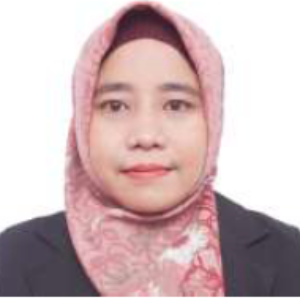Title : Comprehensive profiling and authentication of porcine, bovine, and goat bone gelatins through UHPLC-HRMS metabolomics and chemometric strategies
Abstract:
Given the growing prevalence of gelatin-based pharmaceutical and food items, it is imperative to authenticate gelatin. The halal authentication of porcine, bovine, and goat gelatin has been successfully conducted using a combination of metabolomic method and selective chemometrics. This study aims to identify possible metabolites that might be used to assess the halal status of gelatin made from porcine, bovine, and goat bones. Metabolomics is the scientific investigation of a technique used to analyze and measure the types and amounts of metabolites present in cells. The utilization of a metabolomic technique by using UHPLC-HRMS in conjunction with chemometrics enables the determination of the halal or non-halal status of gelatin. Utilizing UHPLC-HRMS with a metabolomic technique enables effective and efficient separation of metabolites, allowing for the acquisition of comprehensive metabolite profiles in a single analysis. Chemometrics is necessary for analyzing data in the metabolomics technique used to authenticate halal gelatin. It helps identify the unique chemical profiles in gelatin derived from porcine, bovine, and goat bones. The identified metabolite profiles can be used as benchmarks for determining the food authentication. In untargeted metabolomics, the metabolite profile of the primary constituents of porcine gelatin differs from that of bovine gelatin and goat gelatin. The PCA analysis revealed distinct variations in the metabolite profiles of porcine, bovine, and goat gelatin. Cluster analysis revealed distinct properties of metabolites in porcine, bovine, and goat gelatin. PLS-DA has identified fifteen potential metabolites for halal authentication of gelatin. These include Terephthalic acid, 5,5'-[(6Z)-6-Tetradecene-1,14-diyl]bis(1,3-benzenediol), 1,2-Cyclohexane dicarboxylic acid diisononyl ester, 5-Hydroxymethyl-2-furaldehyde, D-(+)-Pyroglutamic Acid, 4-Hydroxybenzaldehyde, Dodecyl sulfate, Bis(2-ethylhexyl) phthalate, Nicotinamide, DL-Malic acid, NP-011548, 4-Nitrocatechol, 1-Linoleoyl glycerol, Olomoucine, and Myristyl sulfate. This research has the potential to be valuable in the process of halal verification of gelatin, as it is based on the analysis of metabolite profiles.
Keywords: Metabolomics, Chemometrics, Bovine, Goat; Porcine, Gelatin
Audience Take Away:
- Understanding Metabolomic Profiling: Attendees will grasp the concept of metabolomic profiling and its application in authenticating porcine, bovine, and goat gelatins, gaining insight into the methodology and techniques involved.
- Expansion of Research and Teaching: This research offers potential avenues for other faculty members to expand their research or incorporate similar techniques into their teaching curriculum, particularly in fields related to food science, metabolomics, and halal authentication.
- Enhancing Consumer Confidence: The findings contribute to enhancing consumer confidence by ensuring the accuracy and authenticity of gelatin-based products, especially for individuals adhering to specific dietary or religious requirements.
- Advancement in Analytical Techniques: This study contributes to the advancement of analytical techniques in the field of food science and metabolomics, showcasing the potential of UHPLC-HRMS metabolomics for addressing complex authentication challenges in food and pharmaceutical industries.


